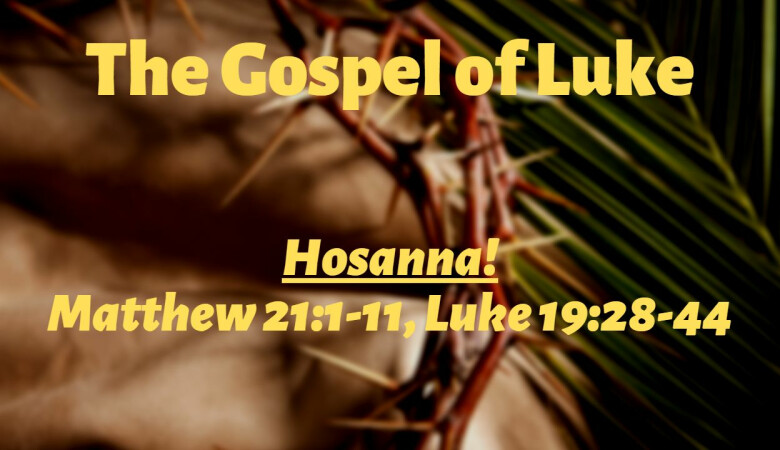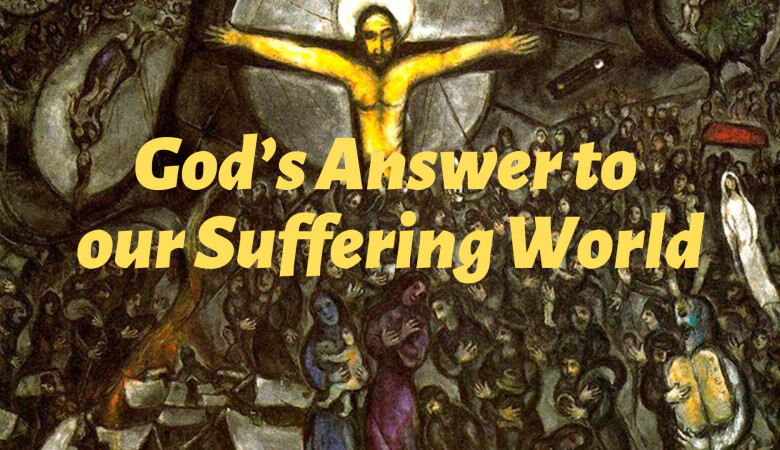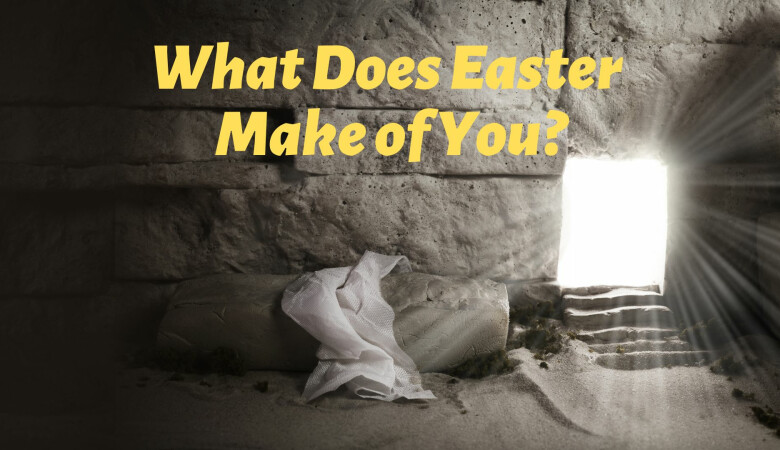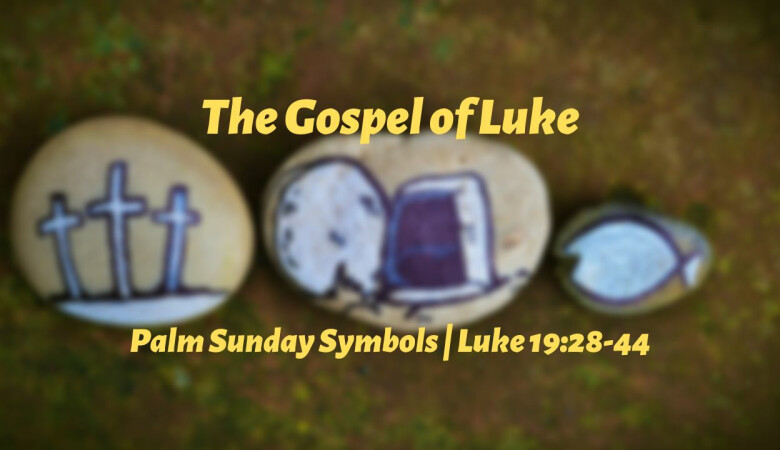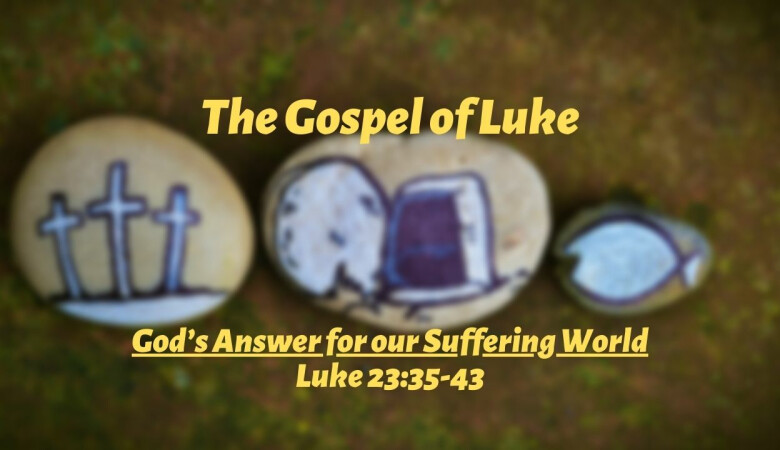Series: Lent
The Cost of New Creation
March 31, 2024 | Peter Rowan
Passage: Luke 23:50-24:12
ALL SERMONS IN SERIES
Summary
Henry David Thoreau said "The price of anything is the amount of life you are willing to exchange for it". That's an amazing insight for budgeting and for how we spend our resources, whether that be our money or our time or our intellect or anything else that we have. It is also an amazing insight into the gospel of Jesus. New life broke forth into the world that first Easter morning and we are told in Holy Scripture that just as Jesus rose from the dead, so also death itself doesn't have the final say for those who are in Jesus. But at what cost? What was the price of Christian hope?
What did it cost to bring life where death was the order of the world? The price for that was the very paschal passion of God's Son, our Lord Jesus himself. That is the cost of our hope
and Jesus paid it all!
Transcript
Lord, what a wonder of wonders. We think of how they were perplexed and amazed, how there was disbelief, how there was running and sharing and all these things that are going on in light of death not having the final say.
Gotta pray in some way to this morning as we hear this story that we know the end of, that is familiar for so many of us that we've heard some of us maybe through our entire lives that in some way we might be perplexed again and we might wonder, that we might be in amazement,
that we might be astounded, that we might be taken in by what you have accomplished by your great love for us. Help us to see in some new and fresh way again this morning the wonder that is the gospel of Jesus, the good news of resurrection from the dead.
Our sins are no more, Satan has been defeated, and hope can spring eternal.
Lord, answer this prayer please this morning, and may we give you all the glory, amen.
Okay, so I read this quote a while back and honestly I've been waiting to share it with you. It says Henry David Thoreau. He said, "The price of anything is the amount of life "you exchange for it." The price of anything is the amount of life you exchange for it.
That's a really wise and accurate statement. It takes price away from just being kind of a monetary thing, but it says, it's how much life you're actually expending on something. It's a good statement to keep in mind when you're thinking what's the true cost of whatever it is.
That can be money of course, that can be time and energy or just whatever. There's a lot of life that we expend on things and the true price is how much life we give for it. Let me tell you about a story I read a little while ago. This is about a boy who spent a lot of money on something and honestly I first read this and I was like, that is silly and maybe even foolish. Let me show this with you.
Does anybody know actually what the longest running TV game show is?
It's The Price Is Right, yeah, Price Is Right. I'm not gonna tell you about The Price Is Right, I just was wondering.
I wanna tell you a story from Wheel of Fortune. Wheel of Fortune actually started in 1975.
That's 49 years old, it's pretty old but not quite as long as The Price Is Right. Well, The Wheel of Fortune ran a week in 1984 that was called Teen Week. I mean, they've done this subsequently too but during this Teen Week there was a young boy who won and this young boy's name was Zach Brown, not Zach Brown, the country musician.
Zach Brown, the country musician, as all of you know, would have only been six years old in 1984. He couldn't be, it was Teen Week, come on people. But anyway, this guy, Zach Brown won Wheel of Fortune. He was 13 years old, he's asked beforehand what he's interested in, what he wants to become and he says, "I wanna become a professional baseball player" as all good 13 year old boys do.
So Zach Brown wins Wheel of Fortune and he wins $3,050 and the Christmas gift boutique. I don't even know what that is but it's a bunch of stuff, I guess, okay. So this Zach Brown takes his $3,050 and he spends it all on a go-kart.
Exactly Francis, that's exactly what I was thinking. I was like, what? He spent all that money on a go-kart. What is this kid thinking, you know?
I mean, maybe like if you're 13, you're like kind of into that thing, maybe it sort of makes sense but it seems rather like foolish. I did the calculation, I did not actually, I googled it and $3,050 today would be about $9,200. I also googled this, if he would have taken that $3,050 and invested it in Apple, which we all wish we would have done in 1984, he would have about $3.5 million today. That would have been a pretty good use of that money, but he went and bought a go-kart.
So we can kind of sit around and talk about how we've maybe foolishly used money or time or we've expended energy, expended life on something and that was the cost of that, something to us.
Because what Thoreau said is true, the price of anything is the amount of life you exchange for it. And actually that would be kind of fun to do and I bet we tell some embarrassing stories and some funny ones and some sad ones.
But I want you to kind of put that aside and I want to get back around to it.
But this morning I want us to sit in this good news of resurrection by looking at the cost of new creation, the cost of new creation. And how we're gonna do that is by looking at a couple of the details that are mentioned for us in Luke's account of the resurrection. So I want us to see the cost of new creation by looking at a couple of the details of this account.
In the Luke account. Both of them are gonna take some explaining, okay. And maybe the first is gonna feel a little cryptic but hopefully as I explain it you'll kind of get where I'm going, okay. Because I think it's actually really important.
So here at the end of Luke we have the first paragraph that begins for us by talking about this man Joseph. We don't know a lot about him. We know he's from a Jewish town of Arimathea. But he's part of the council that he did not consent actually to what happened in the death of Jesus. Which I think is actually really important and something that could be explored. Like we kind of lambast this whole group of people as oh they're all against Jesus. But one of them was saying this isn't right. It's kind of an interesting detail to learn.
But anyway there's this man Joseph. And we're also told that he's a righteous man. Which could be translated a just man also. It actually comes from the same word that we use for righteousness.
And then we also have later is mentioned these Marys that are there. Mary Magdalene and also it says Joanna. And mother the Mary of James. And then it just says other women. Which kind of begs the question like why doesn't he list the other women there you know.
But what quite a few people say is right here at the end of Luke, Luke is actually inviting us back to the beginning of Luke. And we're supposed to consider these other people at the beginning of Luke like Joseph and Mary.
And Zachariah and Elizabeth and Simeon and Anna. And those we're supposed to be thinking back to them. And actually what Luke does a lot is he puts these pairs together. In some ways what he's actually inviting us to do when seeing Mary and Joseph. And here Mary and Joseph and all these people is we're actually invited back to our first parents to be thinking about Adam and Eve and the situation of the goodness of creation and the destruction of the goodness of creation through sin.
So okay when we think of Joseph of Arimathea. Immediately we see a man who obviously has some influence. He's able to go to Pilate and say hey can I have this body? I want to know what you're gonna buy. And he's got some wealth. He's got this tomb that's been carved out.And you know it's empty still so he's got some influence. But we also learn about him pretty immediately is though even though he has this influence his voice is somewhat powerless.
You probably know this experience of having like a voice and you desire to act in the world and actually you're constrained. And when it was needed the most he couldn't speak and he couldn't act in the ways that he was convicted by. He couldn't stop the death of Jesus you could say that.
When we think of the women there at the tomb, immediately what we should be thinking about is how sorrowful their situation is. We think of how they spent their time preparing these spices. And I want you to imagine this. One of their dearest friends. One of their most cherished ones in their life and the one for whom they really put their hope in had just died and they had witnessed it. He had his hands and his feet nailed upon the cross and he died and his body was taken down and they witnessed that. And they go back and they prepare these spices. And I'm guessing and it's probably not far fetched that as they're doing this tears are dripping down off their faces. And experiencing such loss and such tragedy and such sorrow.
And when we think but let's think again about these people in the beginning of Luke. When we think about Elizabeth and Zachariah you'll remember the long barrenness of Elizabeth. Now she longed for a child. It was in her old age that she finally received one. But also you can think of the faithlessness of Zachariah. He laughed and he becomes new because of it. I mean just this broken situation that we see there. And we can think of Anna and Simeon. I mentioned Anna and Simeon I guess maybe two months ago. But there's a detail there in the beginning in Luke chapter two about Anna. That she was widowed after seven years past her virginity. So she was married for seven years and also says that she was 84 years old. Which very likely means she spent more than six decades as a widow. Which would have meant that she lived off of others charity towards her. And she spent her time around the temple simply weeping the reality of her lost husband. Her whole life right.
Of course when we think of Mary and Joseph we think of the gift of the birth of Christ. But we also think of how they were not welcomed at the end. How they had to flee to Egypt because Herod kills the young boys around Bethlehem two years and younger. They flee for their lives. And when you take all these things together when we're drawn to these people's stories.
What you are forced to think about is how this world is not how it's meant to be.
I mean you put all these stories together and there's no question that as we consider them we think this is not right/This is not how it's meant to be. This is not the order of life. Said there's barrenness and sorrow and emptiness and longing that goes unfulfilled in all this.
Death seems to be the order of the day.
So we think back on all this. We know that this isn't how things are meant to be. We ache. You have ache in your life and sorrow ,and barrenness and loneliness and emptiness and a voicelessness. We ache because on some level we also think this isn't how it's meant to be. This is not the life that we were made for. Goodness and fruitfulness and enough for everyone was supposed to be how things were.
God speaking, if you think back again to Genesis chapter one, God speaking over creation, that's good. And that's good. And that's good and he's just looking at all of it and that's right and that's right and that's right. And now we look at it and we look at all these stories and we think something's wrong there and something's wrong there and that's not good and that's not good.
The mere mention of Joseph and Mary, what I'm suggesting to you is inviting us back into this story, both of the goodness of creation and the fact that we live in a world that is not as it's meant to be. Aching bodies because of sin.
And when we think back to the beginning of the Bible to the first stories, to Adam and Eve, I mean the little bit that we get in those couple chapters is just a life abundant. You know, fruit bearing trees, trees bearing fruit in their season and they're just being plenty and enough and overflowing and the fruitfulness of life. And then also we think of a life of freedom and a life of joy, of freedom with one another, right? Nakedness and unashamed kind of stuff and freedom with God walking with him in the garden, just freedom and abundance.
Of course, when we think back there, we also think of how it was taken away, how sin destroyed that experience. We think of shame and we think of hiding and I mean, we think like we heard Malise read for us, the entrance to paradise, Eden, being barred from us. Flaming sword, cutting and burning anything that might come close, bringing death.
And we desire that life again.
And we think of sin bringing the pain of thorns and work and we think of the agony of not just childbearing, but life with others, the desires we have for relationships that go unfulfilled and the ache that we feel. When we think back on that story, we feel, we see the beauty of the garden and we ache because it is so distant.
That experience is so long gone.
The fact is when we think back to creation, what we do is we think back on a time long ago something far away that feels totally unreachable.The good order of things has now become the order of death.
So we sit with Joseph and Mary and we think here, even of their experience of the death of Jesus. And what we see in this story in Luke 23, the end of 23 and 24 is that this Joseph and these Marys and Joanne and all, they are experiencing Jesus death as absolutely final. There's no question in their mind Jesus is dead.
And death is death, right? It's a final thing. And death is the way of the world, the way of sorrow.
Dead people stay dead.
You can live your life pursuing the good of others. So you can live your life as they did the previous few years pursuing hope and this new world to come. But when they finally came down to it, they're like, this is gone. And I've got it treated like it's totally gone.
So verse 53, right? Says, then he took it down, meaning the body of Jesus, and wrapped it in a linen shroud and laid him in a tomb cut in stone. There's a finality to it. I'm wrapping this up, it is going away, and it is no more, right? And then of course, when we look at the Marys here and Joanna 55 and 56, says the woman who'd come with him from Galilee followed and saw the tomb and now his body was laid. Then they returned and prepared spices and ointments. They weren't like, let's sit around because you know what? He's probably gonna come back to life.
No. Like this is done, this is final.
My greatest hopes, my desire for something that would actually change the order of death. Those are crushed. Let's prepare spices and ointments, he's dead.
Death is the order of things.
I'm suggesting to you is when we think back, when we give our attention to these people, we're invited back into this story of creation and our longings, but also when we give our attention to these people, primarily what we see here, initially at least, is that death just wins.
It's just exactly what they expected.
We're forced to deal with this world where dead people stay dead, where we want to cover our bodies because we are so full of shame, where we want to hide from others and from God, where we don't live in the freedom of being known and loved, where we ache for paradise, but the ache just constantly is there.
Never satisfied, never satiated.
Hope is just a wishful thing.
Life as it was meant to be has been taken by death. It's death.
But if the details of Joseph and Mary here, even just the names and how they're highlighted for us, harken us back to this story of creation, I think there's also another detail that is worth sitting in that actually does bring a little bit more of a hopeful thing too, that you may pass over, that also sort of calls us back to creation, okay?
And that is simply the days that are mentioned here. I think this is a thing that could be easily glossed over, but it's very important.
Verse 54, it says it was the day of preparation and the Sabbath was beginning. The day of preparation would have been Friday, the day of Jesus' death. They would have been preparing for the rest that would come on the Sabbath. He was saying this happens right after Jesus died. Jesus died that day, and this is what he did on that day of preparation. So what it's also saying is this is the end of the work week. This is the end of the six days where you work, then you're in a rest.
Which is why actually down in 56 it says this, a strange small comment that is important. On the Sabbath day, they rested according to the commandments.
I think it's so strange in there that we don't actually get to sit in these women's experience, right? They make the ointment on the day of preparation and they rest. Like, wait, why not Luke tell us about how they weep and what's going on inside of them? But Luke is trying to draw our attention to the fact that this is the Sabbath, it's the day of rest according to the commandment. Now, these would have been faithful Jews. They would of course known the stories of creation that we've already considered. They would have known the work of God. But they also would have known exactly what the commandment said.
Which is, you know, honor to Sabbath and keep it holy, six days you shall labor from all your work but on the seventh you shall rest. And why?
Because of creation. For in six days, the Lord made heaven and earth, the sea and all that is in them, and he rested on the seventh. So right in this little detail, it's jumping us back to creation. These labor's days and this day of rest and all this.
So, what I'm suggesting to you is when a faithful Jew, and these were faithful Jews, rested, they were remembering creation. They were going back and thinking, man, that's how it was supposed to be. Why isn't it like that anymore? Oh, how we long for it to be that way.
They ached, their bodies ached, their minds and their hearts ached.
And in some ways, again, they did this because their lives were just filled like ours. Their weeks were filled like our weeks are. Their weeks were filled with work that, you know, heart comes back to the curse of Adam where it feels very fruitless at times. And where are we going? What are we getting done? It's so hard, it's full of thorns. And what do I have to show for it at the end of the day?
Their relationships were filled with the pain of not just childbearing, but childrearing and relationships where you feel like you so badly want to be connected with someone, and there's just a massive disconnect. Their bodies were filled with death, and their life was filled with hate, with the sorrow of living in a world full of sin.
When they thought of their week, this is what I imagine, because it's so often our experience. I wish they could really rest when it comes to the day of rest. Like, not just rest from their labors, but rest in their minds and their hearts and everything, just be at peace.
But instead, they probably looked back on their week, just like we often do, and we know that wasn't very good.
That also wasn't very good, and that wasn't very good. That wasn't very good. Neither was, that wasn't very good. So they go back to the creation week, and they're like, "What, this is not my experience, "but this is what I long for. Must've been how the Marys experienced the Sabbath as they rested.
They thought of how their longings for Jesus were certainly taken away from them in his death. Imagine that first Holy Saturday. (sniffs) That day of rest was the day of pain for them. It was not a day of delightful rest.
Death had won.
But I want you to see how the next day is mentioned. Okay, so listen to this. This is the beginning of chapter 24. "But on the first day of the week, at early dawn, they went to the tomb, taking the spices "they had prepared, and they found the stone "rolled away from the tomb."
Now, what Luke could have done is he could have just said, "On the next day, they went to the tomb." But he says it's the first day of the week. And he doesn't just say, "Oh, it's the first day of the week," but he says, "At early dawn."
Which if you know your Bible, and they would have, they would have been like, "Wait, the first day of the week, "that's the day where light is made. "Let there be light." And this is not just the next day. This is the first day of a new week.
And they're remembering creation. They're thinking about creation.
And they're thinking, "Wait a sec. "It's all being made new."
There's a new creation work at play here. God is coming back to life. And the created order that we have known as death is going to be a created order of life. Maybe all of the not goods, not goods, not goods, not goods are being reshaped into something that could be said to be good and good and good and good again.
What is God doing?
I mean, how in the world did the early Christians, so many of them Jews, who spent their entire lives and for millennia now resting on the Sabbath, changed so that their day of worship was on Sunday? But because it was a new creation that God was doing, they said something has happened here that is wildly different.
The first day of the week is a breaking in of a new order, and it is a new order of new life. That is what God is doing in resurrection.
The first day is bringing us back to the way things were meant to be. And that is the Christian hope.
That things as they are now with your deep ache, that this is not right, and when you read through and you say, "This is good, good, good," you think, "No, it's not. "It's bad, bad, bad, bad, bad." Because what God is doing in Christ is changing it. He's making a new creation where, again, God can say, "Yes, good, yes, very good."
Now, of course, what needs to be said is this came at no small cost.
I certainly don't know all of you. I don't know who's watching. My guess is plenty of you may think that one of the silly things about Christianity, or maybe one of your objections to Christianity, is the whole idea that God would die.
Sounds maybe absurd, silly. What kind of God dies?
But I want to suggest to you this morning that right there is actually the beauty of Christian faith. It may be for you one of the most absurd things about Christian faith, but it's right there that we actually find the beauty of Christian faith.
Because God dying, Jesus dying, and of course Jesus coming back to life, but Jesus dying is the cost of God bringing about new creation.
But that also says to you the value of new creation.
I want you to think back on that thorough quote, right? The true cost of something is how much life you give. And God is willing to say, I'm giving my life, that this might happen, that you might actually live in this world where there's new life and new creation coming into being. The true cost of that, which means the true value of even you and your own resurrection, is God saying, it's my life and I'm willing to give it.
New creation is something that God so values that he'll give his very life for it. And you are invited into that life of new creation. And God's saying, I value you so much that I'm going to give my life for it.
Okay, let me get back to Zach Brown because this is a wild story and I'll try to tie it up. Okay.
I really did think when I first saw this, because I just, how I read the story was this way. This is the silliest thing ever. This boy wins all this money, $3,050, and he spends all of it on a go-kart. For some of you, you're like, that makes sense. I love that. But for me, I was like, that's just wild. Especially when I found out that it was $9,200 and after I figured out that if you would have just bought Apple stock, it'd be 3.5 million. You know, it's crazy.
It's silly. Like maybe you think that Christianity, it's silly that God dies, that kind of cost kind of thing.
But this story that I read, I mean, why it's a story that is remembered so much is because Zach Brown is currently the CEO of the F1 racing company, McLaren Racing.
Do you know how much McLaren Racing is valued at? I looked it up.
$1.3 billion. Zach Brown, a 13-year-old boy, bought a go-kart and he owns an F1 company.
I mean, this is what I'm saying. Okay, that is astounding for us.
But it's not nearly as astounding as the fact that God himself dies and he values his creation, that he declared good and good and good and good and very good. And he knows that it's bad and bad and bad, and he says, "I am going to remake it because it is so valuable to me.
And the cost may be my life, but what is going to come is going to astound you."
Jesus is just the first fruits of the resurrection.
Y'all just wait.
Just wait for what God is going to do in the new creation. It's going to be amazing!
Let me pray for us. Lord, I pray this morning that we would be in awe of your goodness to us and that our hearts would burn with the desire for your resurrection power to come to bear in our lives now and for the day when the knowledge of you will cover the earth as the waters cover the sea, where every knee will bow before you, every tongue will confess that you are Lord, that you are Lord, that we will see that what seems maybe silly, the cost of God's life, the world might be made new, wasn't remotely silly, but was just the beginning of all things being made lovely and good once again.
God, bring us into this resurrection life, we pray.
Yes, for our good and for our joy, but more than anything for your glory. Amen.
Series Information
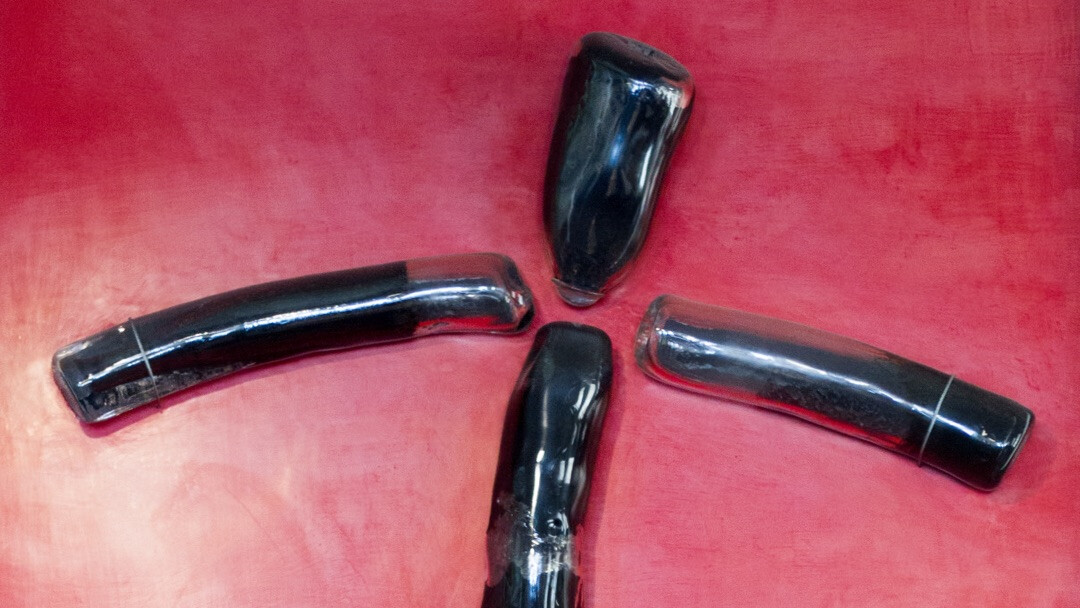
This series includes Ash Wednesday, Palm Sunday, Good Friday and Easter.

